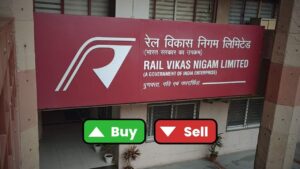Organizations are increasingly turning to workflow automation tools as a solution to streamline processes, reduce errors, and enhance productivity. These tools, when effectively implemented, can transform operations by automating repetitive tasks, ensuring consistency, and freeing up valuable resources for more strategic initiatives. The impact of workflow automation extends beyond mere efficiency; it plays a crucial role in maintaining accuracy, and compliance, and ultimately driving business success in a competitive landscape.
In the rapidly evolving world of project management, the shift toward Agile methodologies has proven to be a game-changer for organizations striving to optimize workflows, enhance productivity, and accelerate project delivery. At the forefront of this transformation is Sai Vaibhav Medavarapu, whose expertise in Agile practices has driven significant advancements across major organizations.
Vaibhav’s career is marked by impressive achievements in the Agile space. He successfully led the Agile transformation of large-scale projects, working closely with major organizations to implement these practices. This effort not only improved project management processes but also resulted in scaling Agile methodologies across various departments, streamlining operations, and increasing overall efficiency. His leadership in these transformations has not only helped organizations climb the corporate ladder but has also established him as a key figure in the industry.
His implementation of Agile practices led to a 20% reduction in project costs by minimizing delays and optimizing resource allocation. Furthermore, he improved team productivity by 30%, enabling faster project completion and reducing time-to-market for critical projects. These improvements directly contributed to a 15% increase in annual revenue for the organizations involved, as faster project completion allowed for accelerated product launches.
One of Vaibhav’s standout projects is the Enterprise Agile Transformation, where he led the implementation of Agile methodologies across multiple departments within a large organization. This project impacted over 500 employees, significantly streamlining project execution. Additionally, his efforts in Cross-Functional Team Integration successfully brought Agile practices to diverse teams, enhancing collaboration and project visibility.
Vaibhav’s contributions have been measurable in significant terms. He achieved a 25% reduction in average project delivery time, cutting it down from 12 months to 9 months. Moreover, his work led to a 20% increase in customer satisfaction scores, a direct result of more timely and reliable project completions.
One of the major challenges Vaibhav overcame was the resistance to Agile adoption within organizations. Through extensive training and by demonstrating the benefits of Agile practices, he successfully navigated this hurdle. Additionally, he developed customized Agile frameworks to address the unique needs of large-scale projects, effectively scaling these practices to accommodate teams of over 200 members.
In addition to his practical achievements, Vaibhav has contributed to the field through his published works, including a 2023 research paper on Agile best practices. His insights into the future of project management suggest a trend towards hybrid Agile frameworks, which combine the flexibility of Agile with the structure of traditional project management methods. This approach is particularly well-suited to large and complex projects, where adaptability and continuous improvement are key to success.
Sai Vaibhav Medavarapu’s work underscores the importance of tailoring Agile methodologies to the specific needs of each organization. His ability to overcome challenges and deliver quantifiable results has positioned him as a thought leader in the field, with his strategies serving as a blueprint for future advancements in project management.












